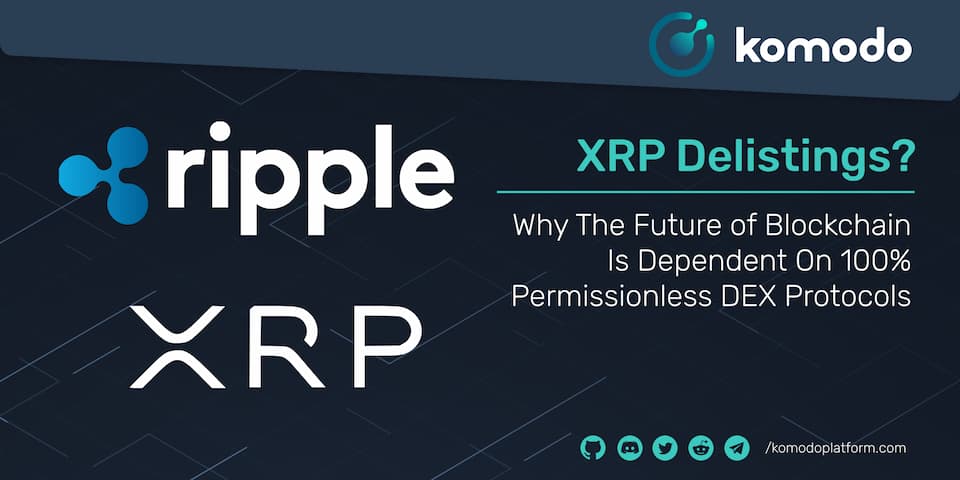The U.S. Securities and Exchange Commission (SEC) filed a $1.3 billion lawsuit against Ripple on Tuesday, December 22. Ripple is being charged with selling XRP over a seven-year period to retail investors. The counterargument being made by Ripple is that XRP (the cryptocurrency) is completely separate from Ripple (the company).
Throughout the crypto space, we have seen mixed reactions from various people. Some have defended Ripple, while others have lambasted it. Regardless of the outcome for the company itself, we have to wonder what’s next for XRP holders.
XRP Delistings?
Several major centralized exchanges are reportedly in the process of delisting XRP. Two smaller exchanges, Fidelity-backed Hong-Kong exchange OSL, and Chicago-based Beaxy Exchange have already done so.
What about decentralized, permissionless exchanges? The reality is that XRP could be delisted from these exchanges, too. However, XRP can’t be delisted from permissionless protocols themselves. The issue is that most DEX protocols that exist today only support the trading of ETH and ERC-20 tokens. XRP also isn’t supported on any notable cross-protocol atomic swap powered DEXs. In contrast, Komodo AtomicDEX is a cross-protocol DEX, meaning it supports cryptocurrencies from 20+ blockchain networks.
XRP isn’t currently listed on AtomicDEX, but let’s use this coin as a theoretical example. While XRP could be delisted from the AtomicDEX app, it couldn’t be delisted from the underlying permissionless protocol. In other words, any other reference applications that use the AtomicDEX protocol (MM2) could make their own decisions on whether they want to delist XRP or not. It’s also much more challenging to delist assets that are on a truly decentralized DEX network, much like it’s difficult to “shut down” a highly decentralized blockchain network.
The XRP Selloff Continues
Unfortunately for XRP holders, 100% of its trading volume is based on whether centralized exchanges decide to list or delist it. As a result, there has been a lot of panic in the markets. Prior to the SEC’s announcement, XRP was sitting at around $0.58. XRP has since lost more than half of its value (sitting at around $0.26 as of this writing).
The true victim of this ruling isn’t actually Ripple (the company). It’s the small XRP holders who had confidence in the project and were blindsided by this decision. This is precisely why permissionless, cross-protocol DEXs should be an essential part of the blockchain industry.

